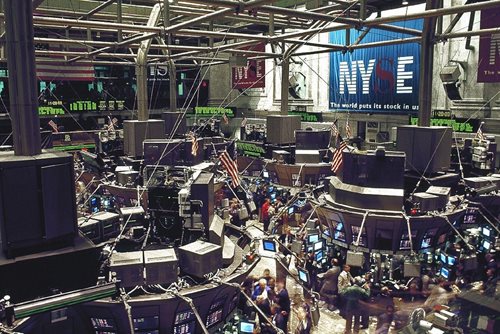
Halloween is almost upon us. Of course, on Halloween night, you may see a parade of monsters, demons, Transformers and other frightening individuals stopping by your house, exercising their right to demand candy. Fortunately, their appearance will be unlikely to cause you unpleasant dreams. But some people seem to have real fears about other things – such as what may happen in the financial markets. One way to keep those fears at bay is to avoid certain impulsive moves, such as the following:
Avoid ducking out of the market
Consider this: In March 2007, the Dow Jones Industrial Average stood at about 12,275 points. Exactly two years later, in the immediate aftermath of the financial crisis, the Dow had fallen to about 6,500 – a drop of 47% and the Dow’s lowest point in 12 years. By that time, a lot of people had gone to the investment sidelines. So, what did they miss? Depending on how long they stayed out of the market, they may have missed some, or perhaps most, of one of the longest and strongest bull markets in history, because, just eight years later, the Dow had soared to almost 21,000, a gain of 223%. Of course, investing does involve the risk of losing principal, and there is no guarantee the market will perform as it has in the past. However, it’s fair to say that if you duck out of the market during its lower points, you might not benefit from the gains that may follow.
Avoid chasing “hot” stocks
By the time you hear about a supposedly “hot” stock, it may already be cooling off. Also, how trustworthy is the source? Does this tip come from an unbiased, knowledgeable individual? If not, you have reason to question its value. Even more important, though, you need to ask if the hot stock is appropriate for your needs, goals and risk tolerance. If not, it’s not so hot.
Avoid taking on too much – or too little – risk
If you feel the need to push your portfolio toward the maximum possible returns, you might invest too aggressively and take on too much risk.
Conversely, if you are determined to avoid any amount of loss, at any time, you might invest so conservatively that your portfolio won’t grow enough to help you achieve your long-term goals. You need to strike a balance between risk and reward that is appropriate for you, and you need to make investment choices suitable for your individual risk tolerance.
Avoid owning too many of the same investments
If you own a lot of one particular financial asset and a market downturn affects that asset class strongly, your portfolio could suffer. But if you spread your investment dollars among domestic and international stocks, bonds, U.S. Treasury securities, certificates of deposit (CDs) and so on, you may not be as susceptible to a downturn, because different types of investments often perform differently at any given time. (Keep in mind, though, that while diversification can help reduce the effects of market volatility, it can’t guarantee profits or protect against all losses.)
No matter what you do, you can’t take all the uncertainty out of investing. But by understanding market volatility and the composition of your portfolio, you can invest with more confidence.